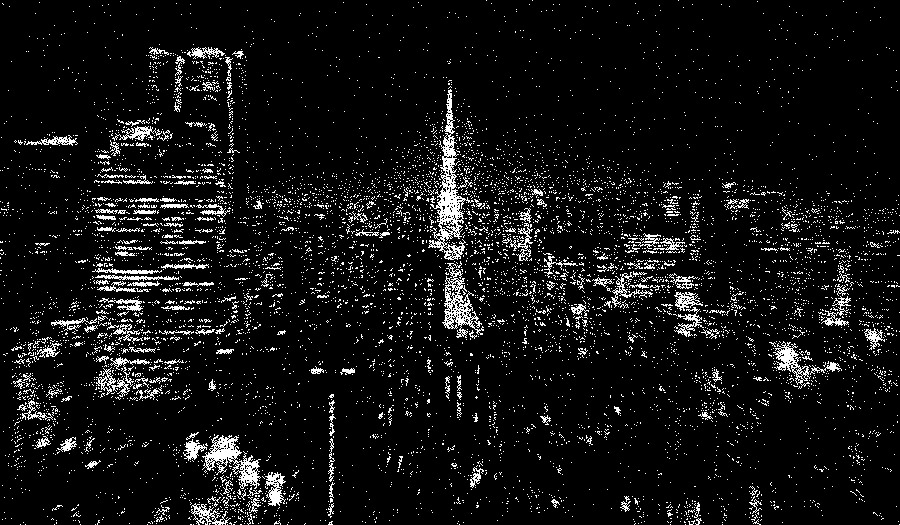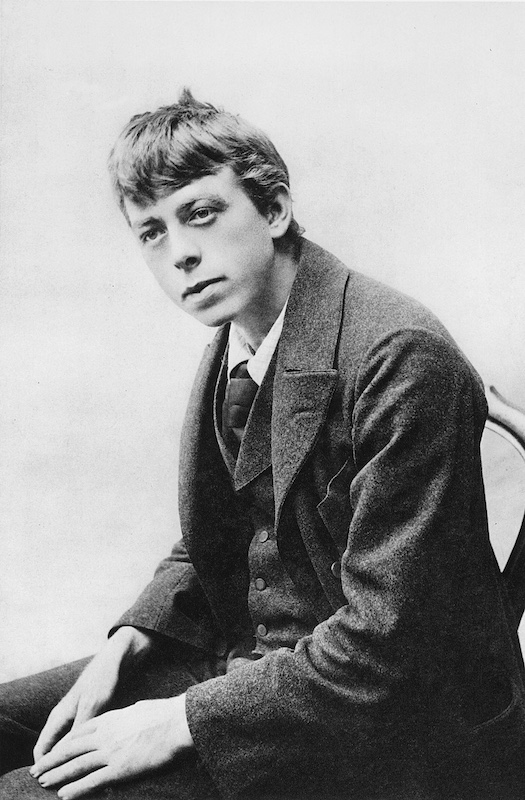
Even in a large city, the streets after a certain advanced hour of night are relatively still. What one hears and sees are apparitions and sounds to which both our eyes and our ears have long since grown accustomed. There are none of the usual sounds. People are at home, sitting around the cozy family table, or else in bars hunkered over their beers and political discussions, or in the concert hall, reverently listening to the pieces of music being performed, or at the theater, following the suspenseful goings-on upon the brightly lit stage, or else they are standing in pairs, or in groups of three or seven on some melancholy street corner, delving into profundities, or else perhaps aimlessly walking in some direction or other. “Hey there, car!” another cries out, and somewhere there might be a poet buried in his isolated room, drunkards wandering in wretched bliss from one still to another, bawling and harassing the passersby; perhaps a horse pulling a hackney cab is collapsing somewhere, a woman fainting, a scoundrel being apprehended by the always vigilant and safety-restoring police force—and suddenly someone shouts: “Fire!” Quite close by, it seems, a fire has broken out. People were just standing around, indecisive and bored, about to accuse the hour of lacking all interest and in any case starting to feel chilled, and suddenly here’s this great novelty being presented, something unexpected to kindle our enthusiasm. Everyone lurches forward and without realizing it has already begun a conversation with whoever happens to be standing alongside, cheeks are glowing, and now people are even starting to leap and run. They’re suddenly doing something they haven’t tried in a good two years. All at once the world appears changed, expanded, thicker, and more tangible.
A metropolis is a giant spiderweb of squares, streets, bridges, buildings, gardens, and wide, long avenues. When a fire breaks out, only the neighbors closest to the scene of the fire know of the conflagration. Indeed, in a huge city like this there can be three, four, or even five large fires in the course of a single night, far apart from one another, each one representing a disaster in its own right, an “event,” without one having even the slightest impact on the others: five suspenseful chapters of a novel, each of them self-contained, without links to the other. A metropolis is a wave-filled ocean that for the most part is still largely unknown to its own inhabitants, an impenetrable forest, an opulent, overgrown, huge, forgotten, or half-forgotten park, a thing that has been built up too extensively for it to ever again be oriented within itself. But now dozens of people are hurriedly racing to the scene of the fire. They now know approximately where the blaze is.
And now you turn a corner and the fire is right in front of you, it looks as if it wants to leap forward to greet you; an entire street is brightly, garishly lit up by it, it resembles a sunset in the distant south, ten evenings ablaze, a host of suns setting in unison. You see the façades of buildings looking like pale-yellow paper, and the bright red glow of the fire approaches, a thick, glowing, wounded red, and beside it the street lanterns look like feebly burning damp matches. And cries ring out. It seems as if trumpets are sounding everywhere, but this is a false impression, everything is relatively quiet, it’s just that you are running, and beside you, before you and behind, others are now loping as well, and hackney cabs are trotting past, and the electric tram passes by. There is something ordinary about all of this, yet at the same time something incomprehensible. Suddenly everyone stops short as if standing before a fairy tale. What now appears resembles a bomb effect dreamed up by an enterprising theater director.

A thick, seemingly incessant rain of small, light sparks and embers flies out of the dark air and down into the crowded street, sowing a crop of glowing snow. At just this moment a commuter train rolls past, and it too is soon entirely covered with this peculiar snow. People are standing there incautiously gazing up into the red-dotted sky without considering that a glowing, scalding hot snowflake might strike them in the eye. The coat of a gentleman who is just riding past on the tram catches fire. This tiny conflagration, however, causes no serious harm. Still it goes on raining in this unfamiliar, unprecedented way. Involuntarily you sense how very fortunate you are to still be capable of believing in a miracle out of the Thousand and One Nights. And indeed: we feel we have suddenly been transported to the Orient and the Arabian nights when we glimpse, right in front of us, a rosily shimmering fairy palace. It is perhaps a building whose architecture has been repeatedly criticized. But at this moment it isn’t clear which is more deserving of admiration: the charm of the Venetian illumination or the unsurpassedly beautiful architecture. This fiery glow is the consummate architect.
You find yourself being shoved this way and that, half lifted up, carried along and rocked. An immense crowd has assembled all around this roaring, hissing, flickering fire catastrophe. Will lives be lost? people wonder. Soon all are finding the throng as familiar as an intimate friendship with a dear, admirable person. Now and again hot fiery winds blow across people’s faces, new flurries of sparks rise in the air, a splendid sight. And still it burns, and so and so many people are taking in the spectacle of the flames. One or the other is about to leave, but once again his eye is drawn back to the fire, irresistibly. If you now stand up high on your toes, you can see constables on horseback. “We were just expecting you,” some young fellow remarks. Others laugh. Everyone is standing head to head, breath beside breath, feeling beside feeling, curiosity beside curiosity, body to body, and each of them still finds himself compelled to go on reading this suspenseful nature story. Automobiles in the midst of the pressing crowd. “Let’s go stand somewhere else. This corner gives me the creeps.” Words of this sort are heard. Suddenly a majestic flaming figure bursts forth from a glowing gap in the conflagration, a veritable fiery giant, and thrusts itself far out into the night air, taking the form of gently falling rain, as though something beautiful and huge was just there and now is dying out.
More and more people keep arriving as others leave. Those departing throw themselves amusingly into the wake of the puffing, tootling cars, which helpfully bore a path through the malleable throng, making their departure possible. The electric trams are stuffed to bursting because of all the many people taking refuge in the cars. Other inquisitive faces peer out the windows of nearby buildings. And now even the elegant nocturnal party set is sending out its envoys, both female and male, bedded in hackney cabs and furs, and still the fire continues to rage. The fire’s wrath is not so easily placated, not even with streams of water, even the most sustained. You see the team of firefighters, admiring the daredevil positions they assume, yet cannot help expecting at every moment to see them succumb to smoke and flames. Now a general jostling ensues: policemen up front are pushing back the crowd! It’s difficult to keep your footing, and in the first uncertainty of your new position you grasp, as if to steady yourself, the nearest available hand, which happens to be the delightful hand of a girl, but then, like it or not, this property must be let go of.
Is this a great calamity? Thanks to the vigilance and valor of the fire department, the extent of the loss has been reduced, but an old, memorable, venerable building has been lost, and this is loss enough. Enough charming sites from ancient times have been snatched from us by everyday life and its raucous demands, and now the fire too is helping to thin out Berlin’s statues and historical monuments. But the populace is not terribly concerned with all that “old rubbish.” A postman standing there among the crowd remarks that it’s good to have room for new things. In Berlin, he adds, things are getting too cramped anyhow—it’s terrible how it blocks the flow of traffic. A person has to head for Charlottenburg—now there’s a proper region where you can find wide, lovely, bright streets, etc.
My companion is now urging me on, he’s cold, and both of us are meanwhile convinced that we are hungry for a nice supper. We leave, but keep turning around to look back again. The yellow, red, glowing entity behind us is still alive, displaying frightful vitality, still speaking this same fierce, furious language, still feeling the same indestructible incendiary sentiments. But my companion declares it’s getting tedious to watch the flames for so long. I concede the point. It is one of my possibly bad habits that I am constantly conceding points to my fellow man.
Robert Walser, 1908


Im Zwielicht der Großstadt, zwischen Stille und Bewegung, malt der Autor ein Bild, das sowohl flüchtig als auch ewig erscheint. Es ist wie ein Tanz des Bewusstseins zwischen Licht und Schatten, wo jeder Moment ein Universum an Möglichkeiten birgt. Diese Worte sind ein Echo der Seele, das in der Unendlichkeit der Stadt widerhallt.
La aparición repentina del fuego ilustra impecablemente cómo la tranquilidad de la noche puede ser interrumpida abruptamente, llevándonos de la contemplación tranquila a la acción frenética.